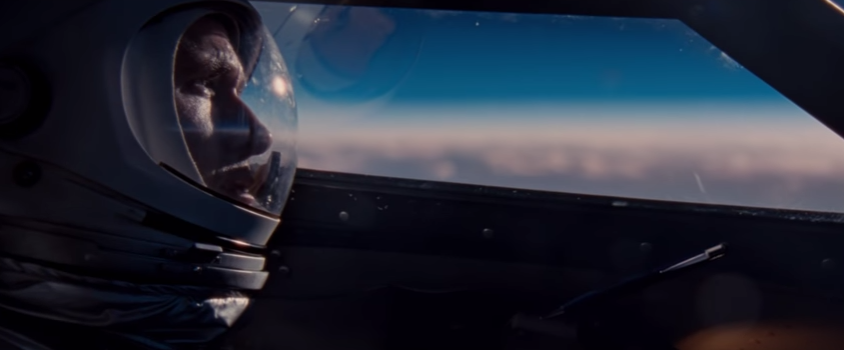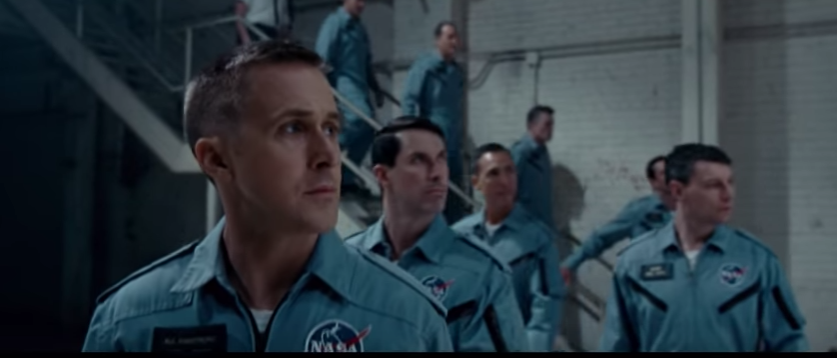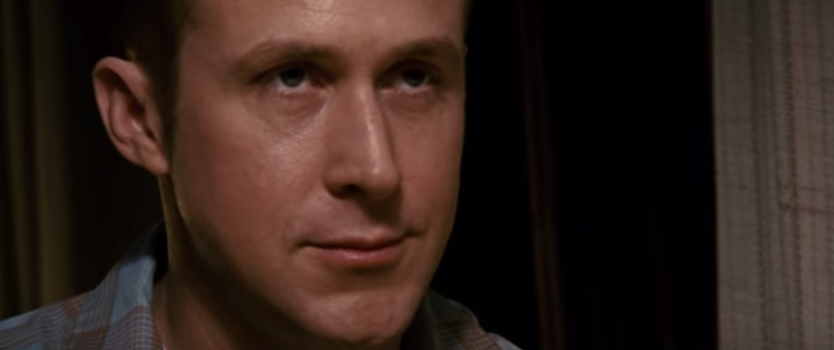Director Damien Chazelle has boldly departed from his usual song and dance (‘Whiplash’, ‘La La Land’) for a character study about one of America’s most famous, but equally mysterious heroes: Neil Armstrong (Ryan Gosling). It’s rare to find an individual that hasn’t heard of the moon landing, but ask them about Neil himself? That’s a different story. ‘First Man’ tries to peek behind the helmet into the private life of Apollo 11’s commanding astronaut, but what we ultimately discover about this rocket man is far less interesting than the mission itself. Despite Chazelle’s dedication to his goal, the outcome is a confusingly toned, disconnected and unrevealing biopic that never quite makes a solid landing.
Suffice to say, let’s begin with the successes. The space and NASA sequences are stirringly raw and enjoyable. The film launches right up to the edge of the atmosphere with Neil (Gosling) as a test pilot, and his quietly contained panic has begun to unravel. The plane’s shifter has just frozen and he’s forcibly dropped back down through the clouds to earth. It’s here – and anytime a grumbling and grinding vessel is featured – the rigid, unsteady and claustrophobic cinematography works well. The thorough set design and the scaled models (designed by actual technicians and crew from the sixties) is an enormously impressive feat, especially in the era of CGI. It proves how disciplined and researched the young director (and his crew) is.
Chazelle also didn’t abandon his melodic instincts and created a lunar mood by featuring music from the Theremin – an electronic instrument loved by the Armstrongs – composed by his trusted collaborator Justin Hurwitz. The most memorable and hypnotic score (fittingly) arrives at the moment of the moon. The performances are solid throughout too. Janet Armstrong (played by Claire Foy) is curt and authoritative as the present parent, left to run the household while her husband chases the stars. Gosling is as smooth as the reclusive, serious and emotionally distant Neil – except when the overwhelming memory of his two-year-old’s cancerous death haunts his consciousness.
Then we arrive at the problems. The film takes place over a notable decade, unapologetically stubborn when it comes to pacing, but even with all of the time taken to explore Neil’s personal family life and sacrifice – we really don’t connect to them or learn anything interesting. There’s a looming sense that the drama is stretched out and added for cinematic effect. It meddles with their dynamic (especially during the final scene) and the beat of the movie feels off. Handheld cameras were used to replicate the grainy home movies filmed by the astronauts themselves, but the tight, shaky and uncomfortably close shots are disorienting at times, even nauseating. It’s too pressurized, uncomplimentary and hinders the film experience. It’s not until the gorgeously expanded and golden moment on the moon where we’re finally awestruck.
‘First Man‘ feels frustratingly amateurish at times, when we’re well aware it’s not – and because Chazelle concentrates more on sentimentality, rather than the talent and astronomical events that shaped Neil’s legacy – it leaves one feeling dissatisfied. The picture is admirably ambitious and impressive technically, but it shoots and misses trying to connect the audience with an ultimately aloof man.









